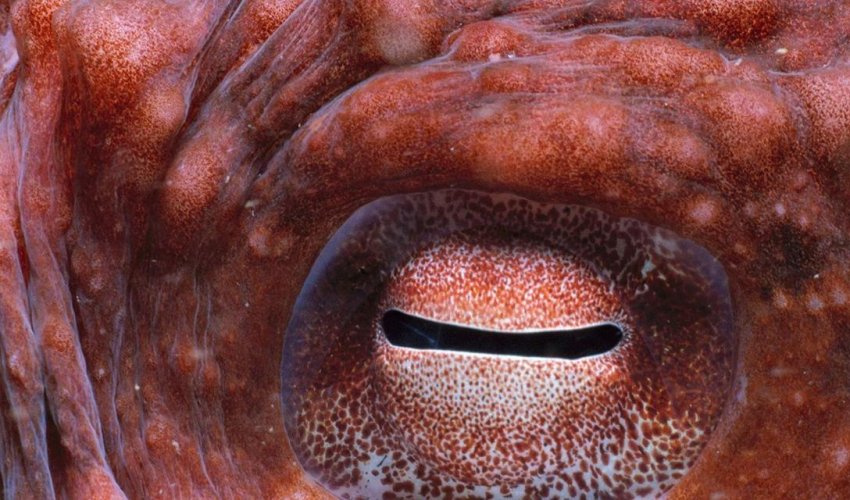8 reasons why octopuses are the geniuses of the ocean

In 2007 I was snorkelling in Dahab, Egypt, when I came face-to-face with a common octopus.
It was an intense experience. I felt it was sizing me up, and there was an ill-defined but somehow profound communication. Our meeting only lasted a few seconds, but I was left with an enduring impression of having encountered a great intelligence.
The experience may help explain the loud cheer I let out in April 2016, when I heard the news of Inky the octopus's great escape from the National Aquarium of New Zealand. The lid of Inky's tank was left ajar at night, and he took advantage of this by climbing out, walking across a room to a drain opening, and squeezing down a 160ft (50m) pipe to the open ocean.
His successful bid for freedom was one more piece of evidence that octopuses are some of the most intelligent creatures on Earth. Here are eight of our favourite octopus behaviours that illustrate just how smart these cephalopods really are.
Intelligent design
Jennifer Mather is a comparative psychologist at the University of Lethbridge in Canada. She has been studying octopuses since 1972. One encounter, during field work in Bermuda in 1984, suggested to her that they were more intelligent than they were being given credit for.
Mather had watched a common octopus catch some crabs and take them back to its shelter to eat. Then it suddenly darted towards a rock about 7ft (2m) away, put it under its tentacles and took it back to its den. The octopus did this three more times, creating a wall in front of its home. As if confident in the extra security measure, it then fell asleep behind the barrier.
Mather argues that this and other examples are evidence that octopuses are capable of foresight and sequencing of actions.
"This demonstrated to me that here was an animal with a mental image of what it wanted and one that was capable of planning," says Mather. "It was very far removed from the automatic stimulus-response that we were used to thinking about with animals."
Tooled up
Mather and her colleagues have argued that using stones to build walls could count as tool use. However others disagree, arguing that the octopuses could be acting in an instinctive rather than a calculated manner.
Then along came the veined octopuses. In 2009, Julian Finn and colleagues at the Museum Victoria in Melbourne, Australia found hard evidence that they used tools.
The octopuses were digging up discarded coconut shells from the ocean floor, cleaning them with water jets, sometimes stacking them and carrying them up to 66ft (20m) to later reassemble as a shelter.
The octopuses were filmed arranging the half-shells with the pointed ends facing down, then extending their arms over them and walking in a comic fashion along the sea floor.
Finn pointed out that this was a slow, awkward and energy-inefficient form of movement, which made them more vulnerable to predators. He argues that the octopuses' willingness to accept these risks, in exchange for protection in the future, is conclusive evidence of genuine tool use.
Bend it like Inky
Play has often been seen as the preserve of animals with higher cognitive abilities. It is hard to precisely define it, but in broad terms play is activity that does not serve an immediately useful function other than enjoyment.
After learning about the work of Lethbridge University colleague Sergio Pellis on mammalian play, Mather wondered whether octopuses play. Working with Seattle Aquarium biologist Roland Anderson, who died in 2014, she devised an experiment.
They placed eight giant Pacific octopuses in bare tanks, and over 10 trials gave them floating plastic pill bottles to investigate. At first the octopuses all put the bottles to their mouths, apparently to see if they were edible, then discarded them.
However, after several trials, two of them began blowing jets of water at the bottles. The bottles were sent tumbling to the other side of their aquarium, in such a way that the existing current brought them back to the octopuses. The researchers, who published the study in 1999, argued that this was a form of exploratory play.
"Roland phoned me and said 'he's bouncing the ball'," says Mather.
She says the octopuses were playing with the bottles. This is similar to the way human children quickly start to play with unfamiliar objects, something psychologist Corinne Hutt highlighted several decades ago.
"If you have an octopus in any new situation, the first thing it does is it explores," says Mather. "I think it was Hutt who said children will go from 'what does this object do?' to 'what can I do with this object'. That's what these octopuses were doing."Temperamentally tentacled
Mather and Anderson were happy to conclude that their octopuses were playing, even though only a couple of them did so. That was because they had previously shown that octopuses have personalities.
This means that individual octopuses behave in consistent ways, which differ from their fellows. This comes as no surprise to people who work with them. For example, octopuses kept in aquaria are often given names, which relate to how they respond to people.
Mather and Anderson set out to measure these personality differences. They kept 44 East Pacific red octopuses in tanks. Every other day for two weeks, a researcher opened their tank lids and put their head close to the opening, touched the octopuses with a test tube brush, and offered them tasty crabs.
The researchers recorded 19 different responses. In a study published in 1993, they identified significant and consistent differences between individuals. For example, some of the octopuses would usually respond passively, while others tended to be inquisitive.
"People often talk about rainforests as complex environments, but the near-shore coral reef is much more so," says Mather. "The octopus has many potential predators and a huge array of potential food, and given their varied and varying environments it makes a great deal of sense that individuals do not fit precisely into the same niche."
In a follow-up study published in 2001, they found evidence that octopuses pass their personality traits onto their offspring. Given that they do not raise their young, this suggests their personalities are at least partly genetic.
Mather believes these variations in personality may underpin many of octopuses' advanced cognitive abilities, by allowing them to learn and adapt quickly.
(BBC)
www.ann.az
Latest news 
More news 



































 Photo
Photo 



 Video
Video 

